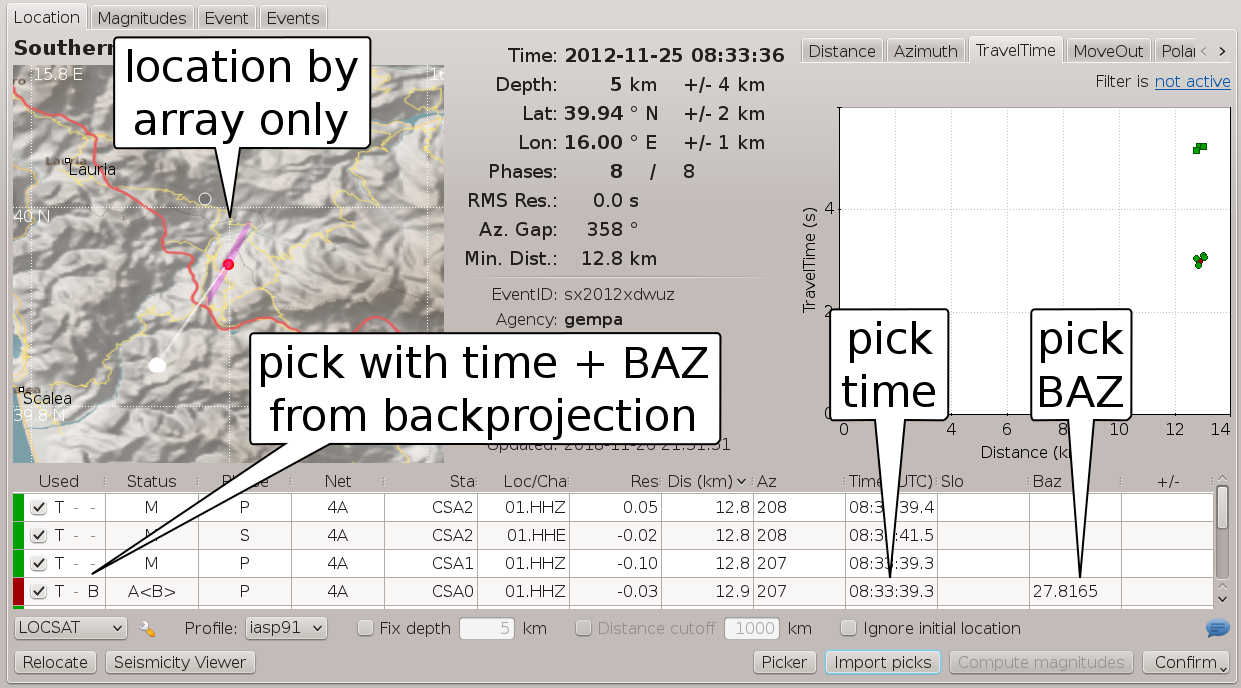Integrate array parameters in SeisComP¶
Manual Analysis¶
Picks and origins received from the messaging system can be interactively processed e.g. by scolv [12]:
Use the Cart window in lambda to:
collect array detections: picks with time, slowness, backazimuth or origins from the one or from multiple arrays,
identify detections from the same seismic event,
relocate to form a new origin,
commit origins to the SeisComP messaging.
or provide origins and picks by autolambda.
Use scolv [12] to either
add the picks to other existing or artifical origins,
process arrays origin adding more picks from other origins,
relocate, compute magnitudes, etc.
In the arrival table and the picker window of scolv, beam picks from array processing are identified by the method:
A<B>: automatic pick from beampacking,
A<F>: automatic pick from F-K analysis.
Time, slowness and backazimuth may be selected individually in the arrival table for locating.

scolv Location tab with an automatic beam detection and manual P and S phase arrivals.¶
Automatic Processing¶
When connected to the SeisComP messaging autolambda and lambda will send the results as picks and origins to message groups from where they can be received and automatically processed by other modules:
Picks are sent to the primary group defined by the global parameter
connection.primaryGroup,Origins along with their arrivals are sent to the location group defined autolambda or lambda parameter in
connection.locationGroup. The associated picks are sent toconnection.primaryGroup.
In a pipeline [4] setup with modified message groups,
connection.primaryGroup and connection.locationGroup should be
configured accordingly.
Picks¶
Picks can be received by modules like scanloc [7] or scautoloc [8] for further processing to form new origins or to add to existing origins.
Picks from array processing usually have a pick time along with slowness or
backazimuth or all parameters. Depending on the accuracy and on the locator
backazimuth and slowness may bias hypocenter solutions. Consider activating or
deactivating these parameters for the considered locator. For LOCSAT [1]
configure the global parameters LOCSAT.usePickBackazimuth and
LOCSAT.usePickSlowness.
Origins¶
Origins e.g. from backprojection can be received by scanloc [7] for associating more P and S phases. Configure scanloc accordingly to start associating even when an origin has only one arrival. Consider initial hypocenter uncertainty.